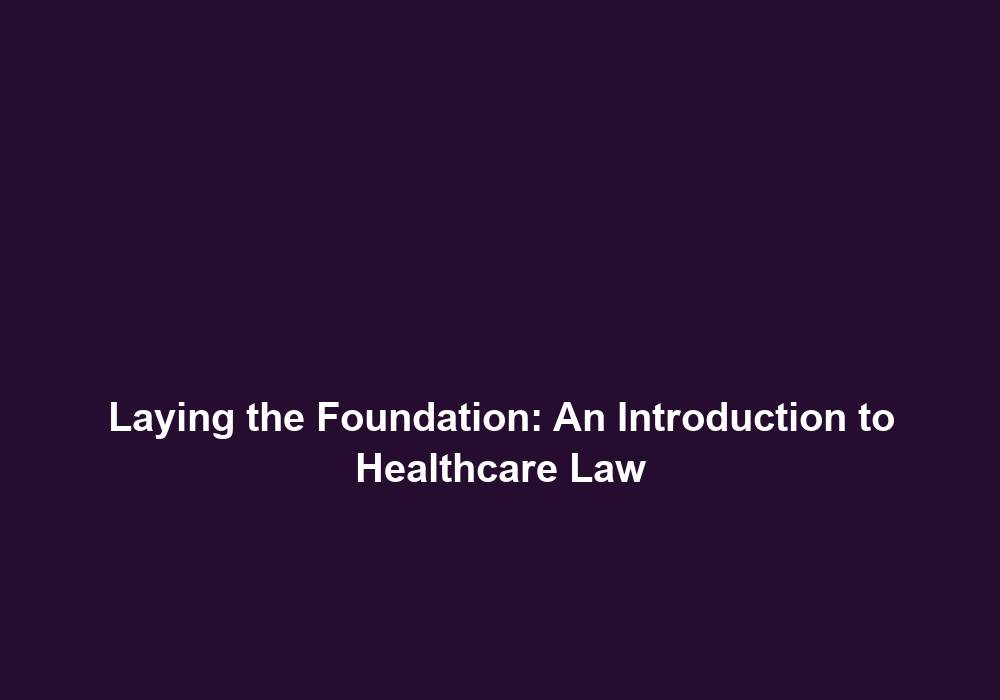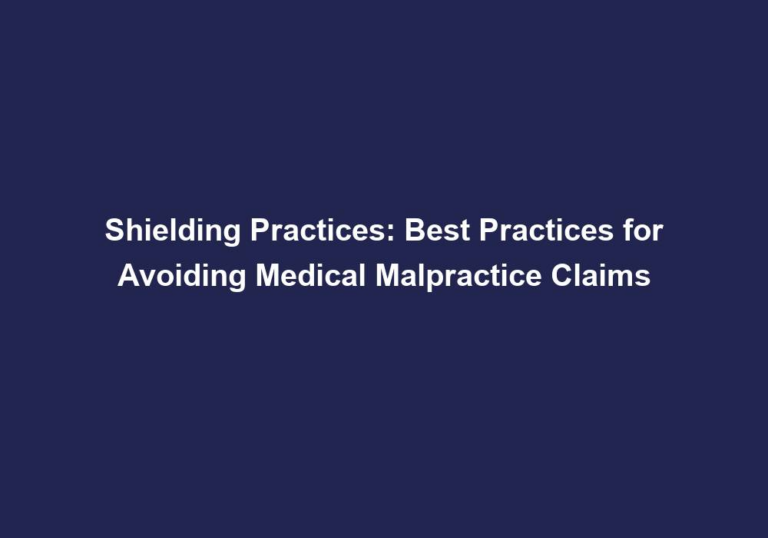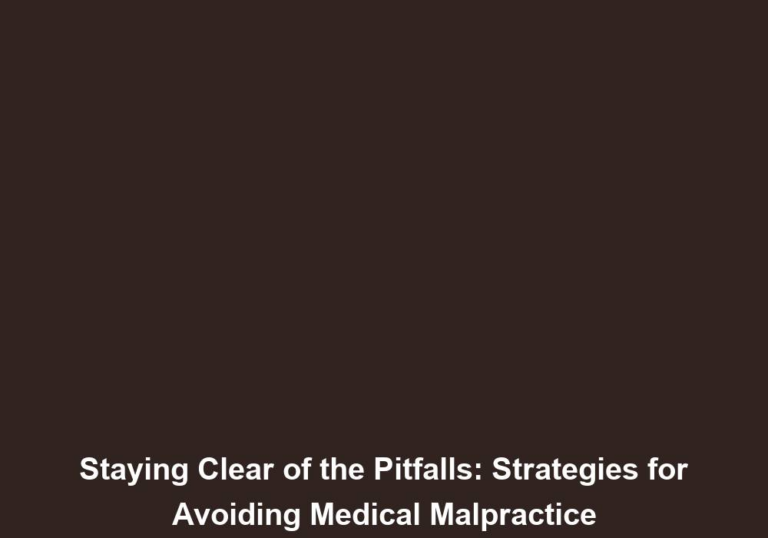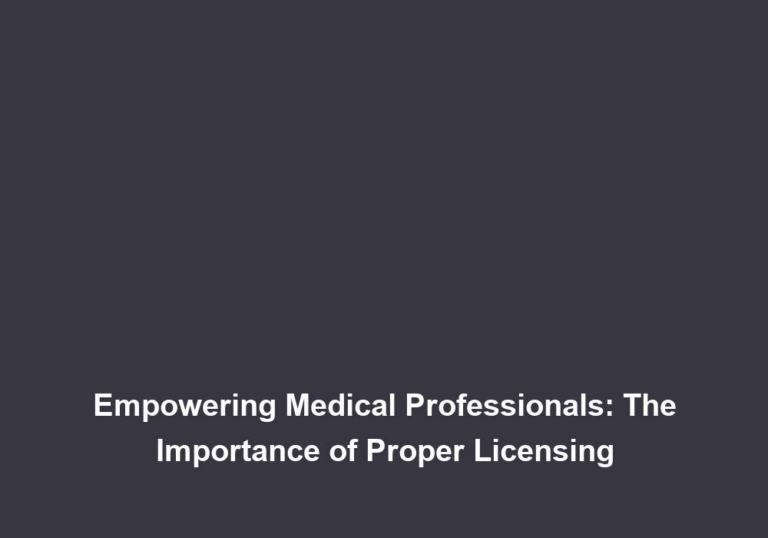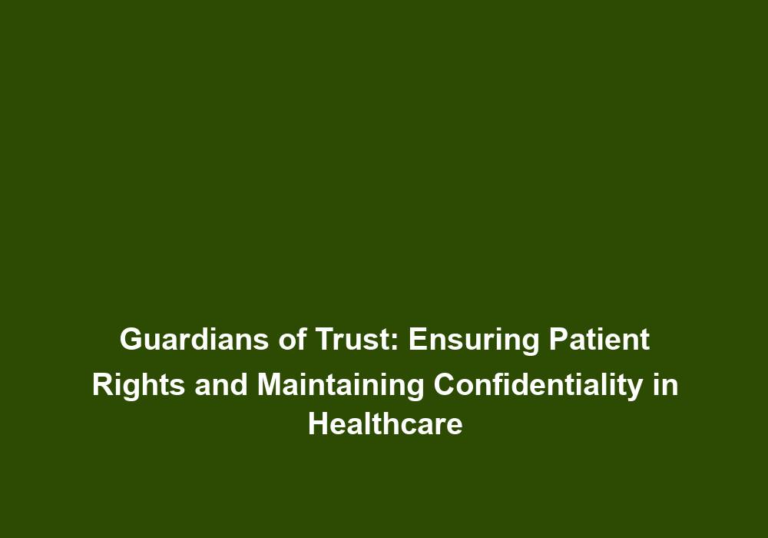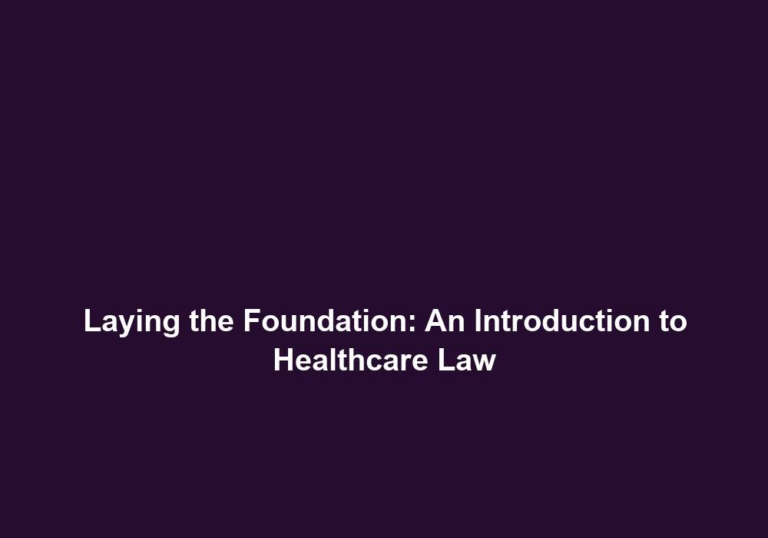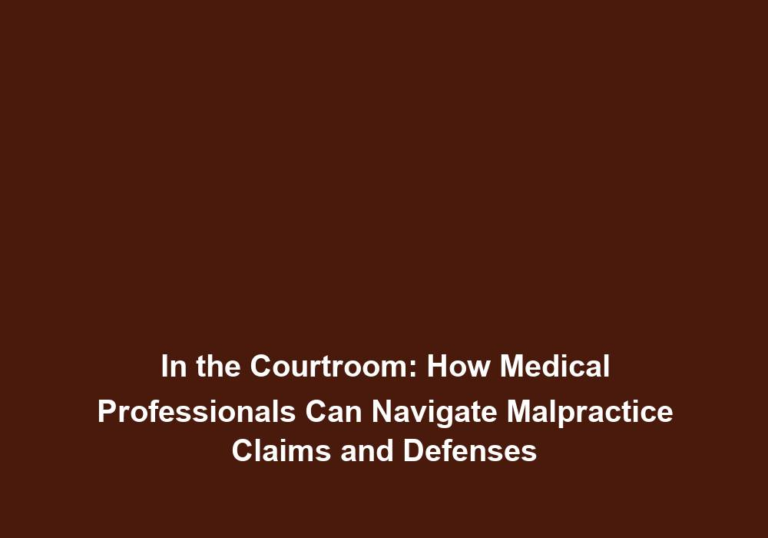Laying the Foundation: An Introduction to Healthcare Law
In today’s complex and ever-changing healthcare landscape, understanding healthcare law is crucial for professionals in the industry. Whether you’re a healthcare provider, administrator, or policymaker, having a solid foundation in healthcare law is essential to navigate the legal framework that governs the healthcare system. This article serves as an introduction to healthcare law, highlighting key concepts, regulations, and the importance of compliance.
The Importance of Healthcare Law
Healthcare law encompasses a wide range of legal principles and regulations that govern the healthcare industry. Its primary objective is to ensure the delivery of safe, quality healthcare while protecting the rights and well-being of patients. Healthcare law plays a vital role in guiding healthcare professionals, organizations, and policymakers in making ethical and legal decisions concerning patient care and healthcare operations.
1. Legal and Ethical Principles
Healthcare law is built on a foundation of legal and ethical principles. Legal principles include concepts such as autonomy, confidentiality, informed consent, and negligence. Autonomy refers to the right of patients to make decisions about their own healthcare, while confidentiality ensures that patient information remains private and protected. Informed consent requires healthcare professionals to provide patients with all necessary information about their condition, treatment options, and potential risks. Negligence, on the other hand, relates to the failure of healthcare providers to meet the standard of care expected in their profession.
Ethical principles, on the other hand, focus on moral values like beneficence (promoting good), non-maleficence (avoiding harm), justice, and respect for patient autonomy. Beneficence requires healthcare professionals to act in the best interest of their patients, while non-maleficence emphasizes the duty to avoid causing harm. Justice ensures fairness in healthcare delivery, while respect for patient autonomy recognizes the importance of patient choice and self-determination. Understanding and applying these principles is essential for healthcare professionals to provide effective and ethical care.
2. Medical Malpractice
Medical malpractice is a key area of healthcare law. It refers to the negligence or misconduct of healthcare professionals that results in harm to patients. To establish a medical malpractice claim, certain elements must be proven, including the existence of a doctor-patient relationship, a breach of the standard of care, causation, and damages. Healthcare providers must adhere to specific standards of care to avoid potential legal liabilities.
Breach of the standard of care refers to a healthcare provider’s failure to meet the level of competence and care expected in their profession. This can include errors in diagnosis, treatment, medication administration, or surgical procedures. Causation requires showing that the healthcare provider’s negligence directly caused the patient’s harm. Damages refer to the physical, emotional, and financial losses suffered as a result of the medical malpractice. Medical malpractice cases can be complex and require expert testimony to establish the necessary elements.
3. Health Insurance Portability and Accountability Act (HIPAA)
HIPAA is a federal law that protects the privacy and security of patients’ health information. It sets standards for the electronic exchange, privacy, and security of health information, ensuring that sensitive patient data remains confidential. Healthcare organizations and providers must comply with HIPAA regulations to safeguard patient privacy and avoid penalties.
HIPAA regulations require healthcare providers to implement administrative, physical, and technical safeguards to protect patient health information. These safeguards include conducting risk assessments, implementing access controls, encrypting electronic data, and training employees on HIPAA requirements. Failure to comply with HIPAA can result in significant fines and reputational damage for healthcare organizations.
4. Stark Law and Anti-Kickback Statute
The Stark Law and Anti-Kickback Statute are federal laws that regulate financial relationships in healthcare. The Stark Law prohibits physicians from referring patients to entities with which they have a financial relationship, while the Anti-Kickback Statute prohibits the exchange of remuneration to induce patient referrals. Compliance with these laws is crucial to avoid potential violations and legal consequences.
The Stark Law aims to prevent self-referral and financial incentives that could influence a physician’s medical judgment. It prohibits physicians from referring Medicare or Medicaid patients for designated health services to entities with which they have a financial relationship, unless an exception applies. The Anti-Kickback Statute, on the other hand, prohibits offering, paying, soliciting, or receiving anything of value to induce or reward patient referrals.
Compliance with the Stark Law and Anti-Kickback Statute requires healthcare organizations to carefully structure their financial relationships and ensure that they meet all applicable exceptions and safe harbors. Violations of these laws can result in substantial penalties, including fines, exclusion from federal healthcare programs, and imprisonment.
Compliance and Healthcare Law
Compliance with healthcare laws and regulations is paramount for healthcare organizations and professionals. Non-compliance can result in severe penalties, fines, and reputational damage. Here are some key aspects of compliance:
1. Policies and Procedures
Healthcare organizations must develop and implement comprehensive policies and procedures that align with applicable laws and regulations. These policies should cover areas such as privacy and security, informed consent, documentation, and billing practices. Regular updates and staff training are essential to ensure adherence to these policies.
Policies and procedures provide guidance to healthcare professionals on how to navigate legal and ethical challenges in their daily practice. They outline the expectations and requirements for delivering safe, quality care while complying with relevant laws and regulations. Regular updates ensure that policies remain current in a rapidly changing healthcare environment. Staff training ensures that healthcare professionals are aware of their obligations and equipped with the knowledge and skills to comply with healthcare laws.
2. Auditing and Monitoring
Regular auditing and monitoring of healthcare operations help identify and address any potential compliance issues. By conducting internal audits and reviews, organizations can ensure that proper protocols are followed and potential violations are detected and resolved promptly.
Auditing involves the systematic review of healthcare operations, processes, and documentation to assess compliance with applicable laws and regulations. It helps identify areas of non-compliance, gaps in processes, and opportunities for improvement. Monitoring involves ongoing surveillance of key indicators and performance metrics to ensure that compliance is maintained over time. By implementing effective auditing and monitoring programs, healthcare organizations can proactively identify and address compliance issues before they escalate.
3. Compliance Officers
Designating a compliance officer within healthcare organizations is crucial to oversee and manage compliance efforts. Compliance officers are responsible for developing and implementing compliance programs, training staff, conducting audits, and addressing any compliance concerns. They serve as a point of contact for employees and external stakeholders regarding compliance matters.
Compliance officers play a critical role in promoting a culture of compliance within healthcare organizations. They are responsible for establishing and maintaining effective compliance programs that align with legal and regulatory requirements. Compliance officers ensure that employees have access to the necessary resources and support to meet their compliance obligations. They also serve as a liaison between the organization and regulatory authorities, facilitating communication and cooperation in compliance-related matters.
4. Reporting and Investigation
Healthcare organizations must establish mechanisms for reporting and investigating potential compliance violations. Whistleblower policies and anonymous reporting channels encourage employees to report any concerns without fear of retaliation. Prompt investigation of reported concerns is essential to address potential non-compliance effectively.
Reporting mechanisms provide a confidential and secure way for employees and stakeholders to report suspected compliance violations. Whistleblower policies protect individuals from retaliation for reporting concerns in good faith. Anonymous reporting channels further enhance transparency and encourage reporting from those who may fear reprisal. Investigations of reported concerns involve gathering evidence, conducting interviews, and taking appropriate action to address any identified non-compliance. Timely and thorough investigations demonstrate the organization’s commitment to compliance and help prevent future violations.
Conclusion
Healthcare law forms the backbone of regulations and principles that guide the healthcare industry. By understanding the key concepts, regulations, and compliance requirements, healthcare professionals, organizations, and policymakers can navigate the complex legal landscape while ensuring the delivery of safe, ethical, and quality care to patients. Staying abreast of the evolving healthcare laws is crucial in today’s dynamic healthcare environment, where legal compliance and patient welfare go hand in hand.

